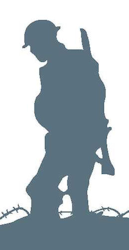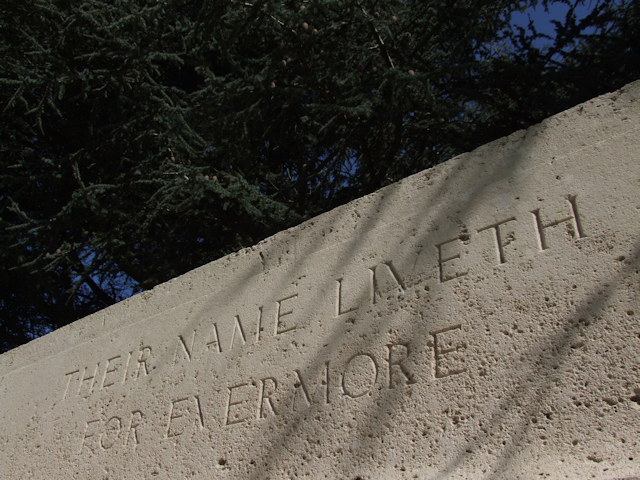Name
David James Tew
Conflict
First World War
Date of Death / Age
11/06/1920
25
Rank, Service Number & Service Details
Private
105796
Hertfordshire Yeomanry
Awards: Service Medals/Honour Awards
Not Yet Researched
Cemetery/Memorial: Name/Reference/Country
Not yet known
Not yet known
United Kingdom
Headstone Inscription
Not Researched
UK & Other Memorials
St Mary’s Church Memorial, Standon
Biography
David James Tew enlisted at Hertford in 1915, into the Hertfordshire Yeomanry. He was a Private, No. 105796.
He has a rather different story to the other men on this memorial. Part of his service record has survived and we can see that in spite of being passed fit – category ‘A’, he actually spent as much time in hospital or convalescence than on military duties.
David was the second son of Nehemiah and Emily Tew, nee Harvey, both born in Standon.
The family situation was a little complicated. Emily Harvey came to her marriage with Nehemiah, an agricultural labourer at that stage, in 1890 with a baby daughter, Ellen Harvey. They lived in Stortford Road near what was the Falcon in 1891. Their eldest son Alfred was born the next year in Standon, but subsequent children were born elsewhere as they moved to follow their father’s work. Our soldier, David, was born in Ponders End on 25th November 1894 followed by a sister, Maud three years later, born in Kentish Town. The 1901 census shows the family at Islington Green, just along the road from Collins Music Hall, and Nehemiah is shown as a ‘crane driver on public works’. That same year, mother Emily died aged 32, her burial entry at Standon is dated 28th September 1901.
This sad event rather fragments the family and Emily’s Harvey relatives came to the rescue. On the 1911 census all three Tew children (by then aged 13, 16 and 19 years are to be found living with an uncle, James Harvey, a shepherd, and his wife Esther at Mill End, Standon. Alfred is a farm labourer and David is a baker. History had repeated itself in a way, as mother Emily had herself lived with her uncle James when her own parents had both died when she was young.
David followed his brother into the Army although Alfred had enlisted prior to the Great and was discharged before the end of the war. After some initial training in England David embarked from Devonport in January 1916 and on arrival joined the 1st Battalion 1st Hertfordshire Yeomanry at Matruh, Egypt on 4th February 1916. On 20th June he was admitted to hospital with Diarrhoea. He re-joined his unit 2nd July 1916 but by the end of the month he had been in trouble for insolence to a superior officer. Just three months later, at the end of October, he was again hospitalised in Amara (in what is now Iraq) with Paratyphoid fever and in spite of six weeks treatment, he was invalided to India from Basra on 14th December 1916. We must assume he was in India for a year, as on 18th January 1918, he embarked from Karachi to Basra to re-join his unit at Ramhadi in February. In March, he is hospitalised again for just 5 days with Prostatitis, which is caused by bacterial infection, as is Paratyphoid, so with the benefit of hindsight, we can see a pattern emerging. He then seems to have had several medically uneventful months before he is again in hospital with influenza which takes him out of action for a month. In March 1919 he was on a ship heading back to England and demobilisation.
He married Gertrude M.D. Jordan in Enfield in June 1919 and they had a daughter, Hazel, later that year. David died in the second quarter of 1920 in the Edmonton area at the age of 25. Unfortunately at present, we do not know where he is buried.
The part of his service record that would tell us if he saw action has not survived, but a little background on the campaign in Egypt and Iraq may be of interest. The Mesopotamia Expeditionary Force was prompted by Turkey entering the war in October 1914. The fact that in the area was one of the first oil refineries, with contracts to supply the Navy, probably had a bearing on the situation. After some initial successes against the Turks, the British and Indian forces lost a battle, withdrew to a nearby town, which was then besieged, and eventually surrendered to the Turks, who took hundreds of prisoners, many of whom did not survive the brutal treatment and conditions on the route to a prison camp in Anatolia. Eventually with reinforcements the tide turned in Britain’s favour, but 31,000 officers and men from the Indian and British Armies were lost either in combat or from disease during the four year campaign.
Whether David’s death at such a young age can be blamed on his genes, with both parents dying very young, or whether the heat and general conditions he endured and the ailments he contracted, led to his death, we will probably never know.
Additional Information
Currently (4/9/2021) this man does not appear in the CWGC records, however an appeal to include him had been made by Di Vanderson.
Acknowledgments
Jonty Wild
Di Vanderson, Jonty Wild



